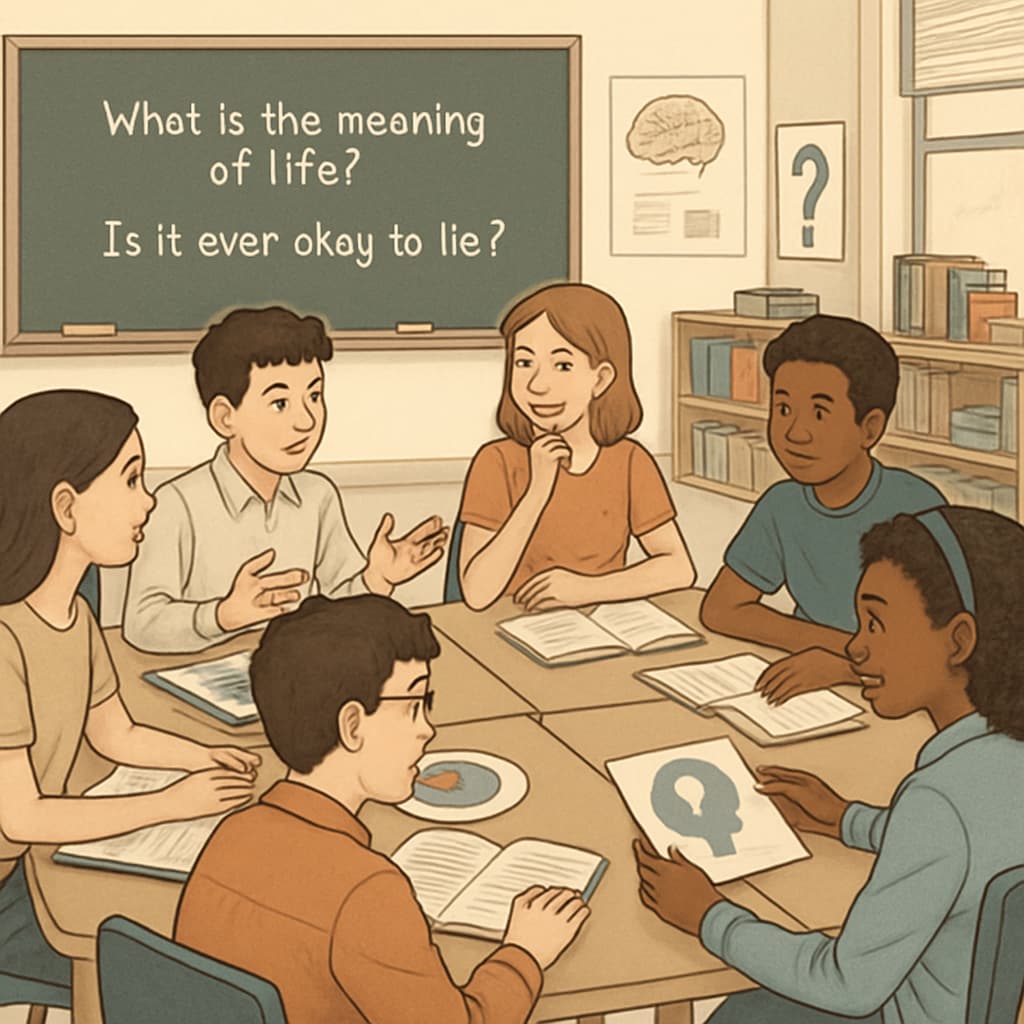Introducing psychology, philosophy, and interest-based learning into the K12 curriculum can help students expand their intellectual horizons and develop critical thinking skills. These disciplines, often reserved for higher education, offer unique opportunities for younger students to explore complex ideas in an age-appropriate way. By integrating engaging activities, curated reading plans, and hands-on projects, educators can inspire interest and lay the foundation for lifelong learning.
Why Psychology and Philosophy Matter in K12 Education
Psychology and philosophy provide students with tools to better understand themselves and the world around them. Psychology, for instance, introduces concepts like behavior, emotions, and cognition, helping students develop self-awareness and empathy. Meanwhile, philosophy encourages them to think deeply about existence, ethics, and reasoning, fostering critical thinking and problem-solving abilities.
Incorporating these subjects into K12 education doesn’t mean overwhelming students with academic jargon. Instead, it involves introducing accessible and relatable concepts tailored to their age group. For example, younger students can explore ideas about fairness and decision-making through group discussions, while older ones might delve into topics like identity or the ethics of technology.

Practical Ways to Introduce Psychology and Philosophy
Educators can ignite students’ interest in psychology and philosophy through creative strategies. Here are some practical approaches:
- Interactive Discussions: Host debates or discussions on topics like “What is happiness?” or “Why do people act differently in groups?” These encourage students to think critically and articulate their ideas.
- Storytelling: Use stories or historical anecdotes to introduce philosophical dilemmas or psychological concepts. For instance, Aesop’s fables can serve as a starting point for discussing morality.
- Games and Simulations: Psychological experiments like “The Marshmallow Test” can be recreated to teach concepts like delayed gratification, while role-playing activities can explore ethical dilemmas.
- Art and Media: Films, books, and art can be analyzed to uncover psychological themes or philosophical questions. For example, Pixar’s movie “Inside Out” is perfect for discussing emotions and memory.
These methods not only make learning enjoyable but also encourage students to see the practical relevance of these disciplines in their daily lives.
Resources for Students: Books, Activities, and Projects
To sustain interest, educators and parents can provide students with resources that align with their curiosity. Here are some recommendations:
- Books: For younger readers, books like “What Do You Do With an Idea?” by Kobi Yamada can introduce philosophical thinking. Older students might enjoy “Man’s Search for Meaning” by Viktor Frankl or “Sophie’s World” by Jostein Gaarder.
- Online Resources: Websites like Simply Psychology and Stanford Encyclopedia of Philosophy offer accessible introductions to key concepts.
- Projects: Encourage students to create their own “Philosophy Journals” or conduct simple psychological observations, such as noting how different music affects their mood.
- Workshops: Organize guest lectures or hands-on workshops with professionals in these fields to provide real-world context.

Overcoming Challenges in Early Introduction
While introducing psychology and philosophy at the K12 level has immense benefits, it is not without challenges. Some educators might feel unprepared to teach these subjects, while others may worry about their complexity. Here are some tips to address these concerns:
- Start Small: Begin with simple topics that are universally relatable, such as emotions, fairness, or decision-making.
- Collaborate: Partner with colleagues or invite guest speakers who have expertise in these areas.
- Use Age-Appropriate Materials: Choose resources that match the developmental stage of the students, avoiding overly technical language.
- Encourage Questions: Foster an environment where students feel comfortable asking questions, even if they challenge existing perspectives.
By addressing these challenges thoughtfully, educators can create a supportive space for students to explore these fascinating disciplines.
The Long-Term Benefits of Early Exposure
Introducing psychology and philosophy early in life can have profound long-term benefits. Students who engage with these subjects often develop stronger analytical and empathetic skills, which are essential for personal and professional success. Moreover, exposure to these disciplines can inspire students to pursue careers in fields like counseling, academia, or ethics.
In addition, these subjects teach students to approach problems from multiple perspectives, a skill that is increasingly valuable in our interconnected world. Early exposure to such critical thinking tools lays a strong foundation for lifelong learning and adaptability.
Ultimately, integrating psychology and philosophy into K12 education is not just about academic enrichment—it’s about equipping the next generation with the intellectual and emotional tools they need to navigate a complex world.
Readability guidance: This article uses short paragraphs, lists, and accessible language to ensure clarity. It incorporates transition words to maintain a smooth flow and keeps passive voice to a minimum.


